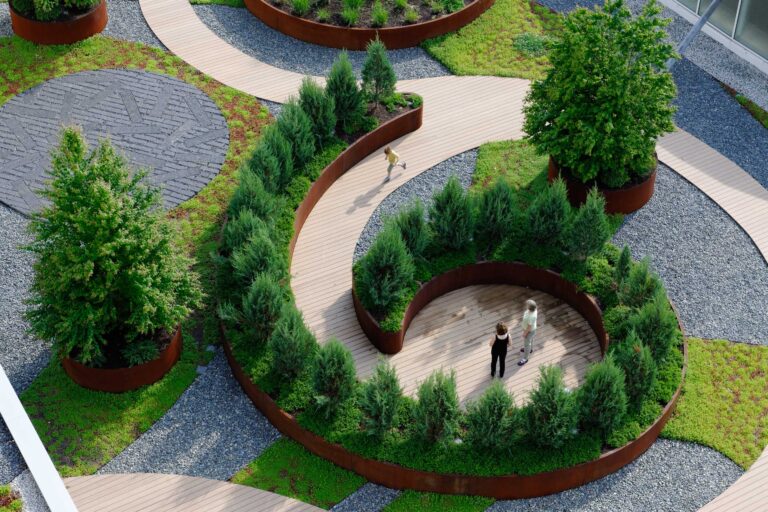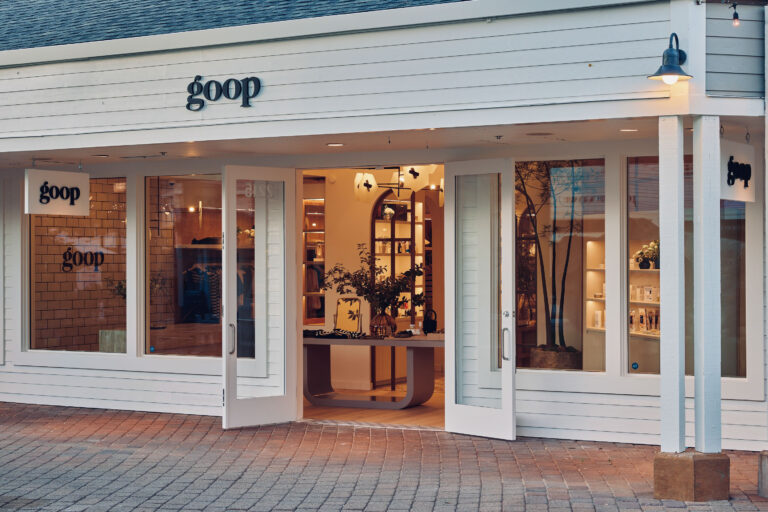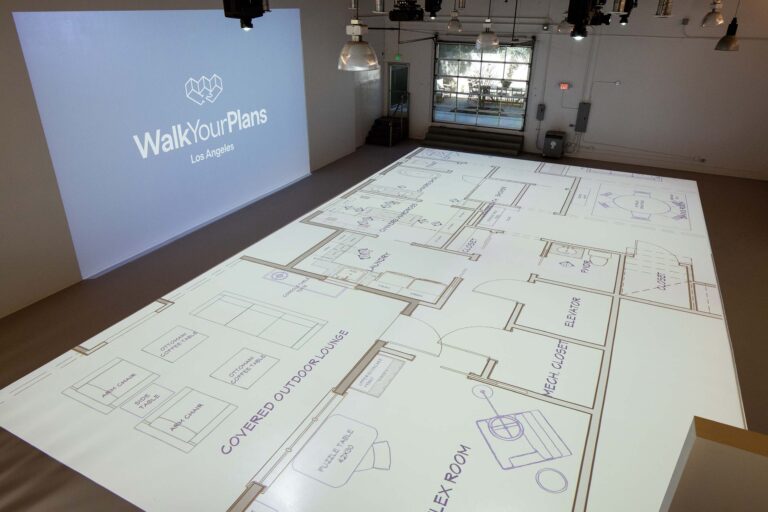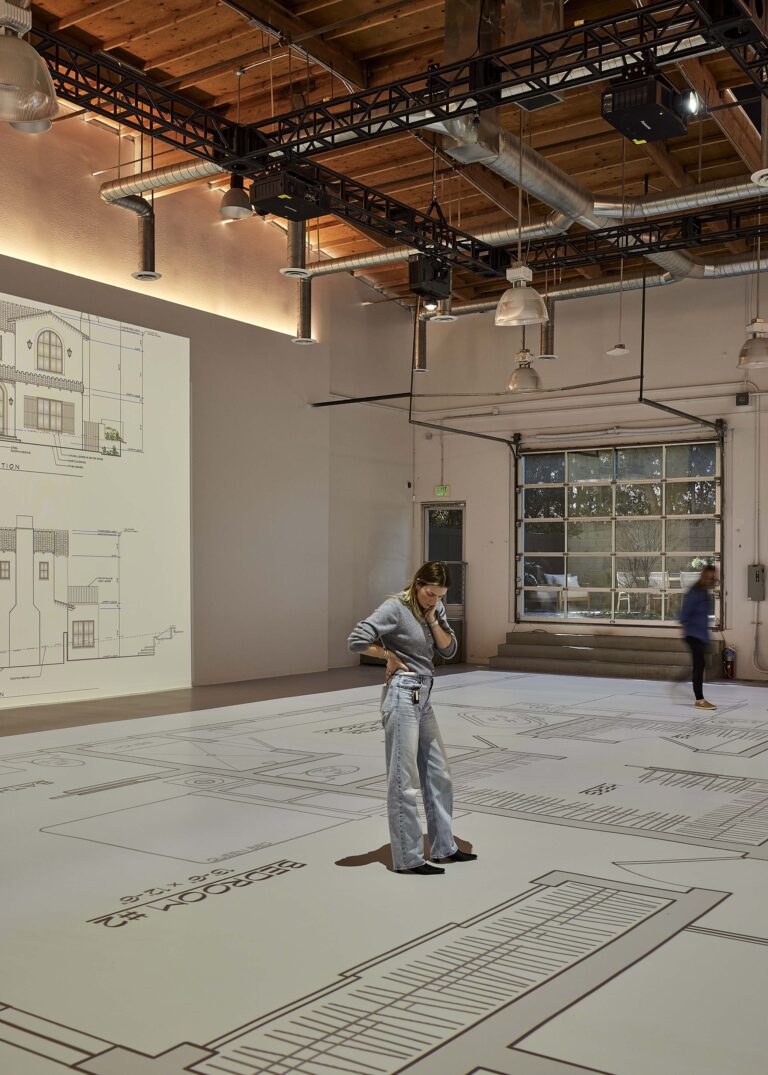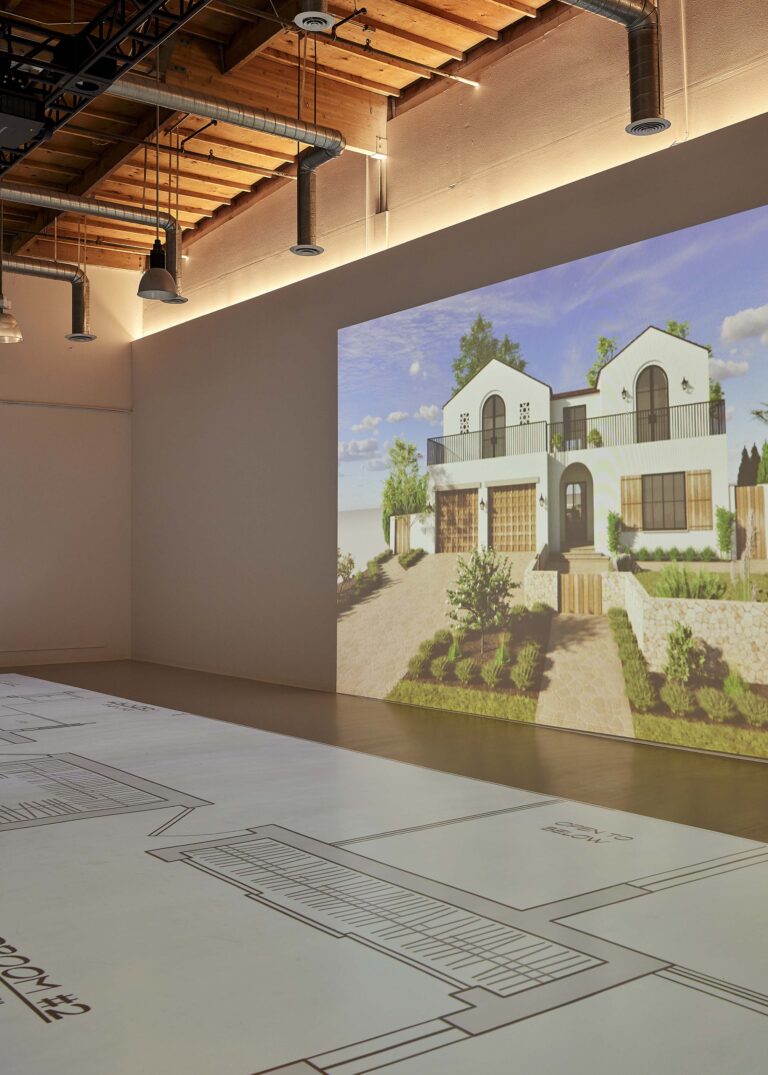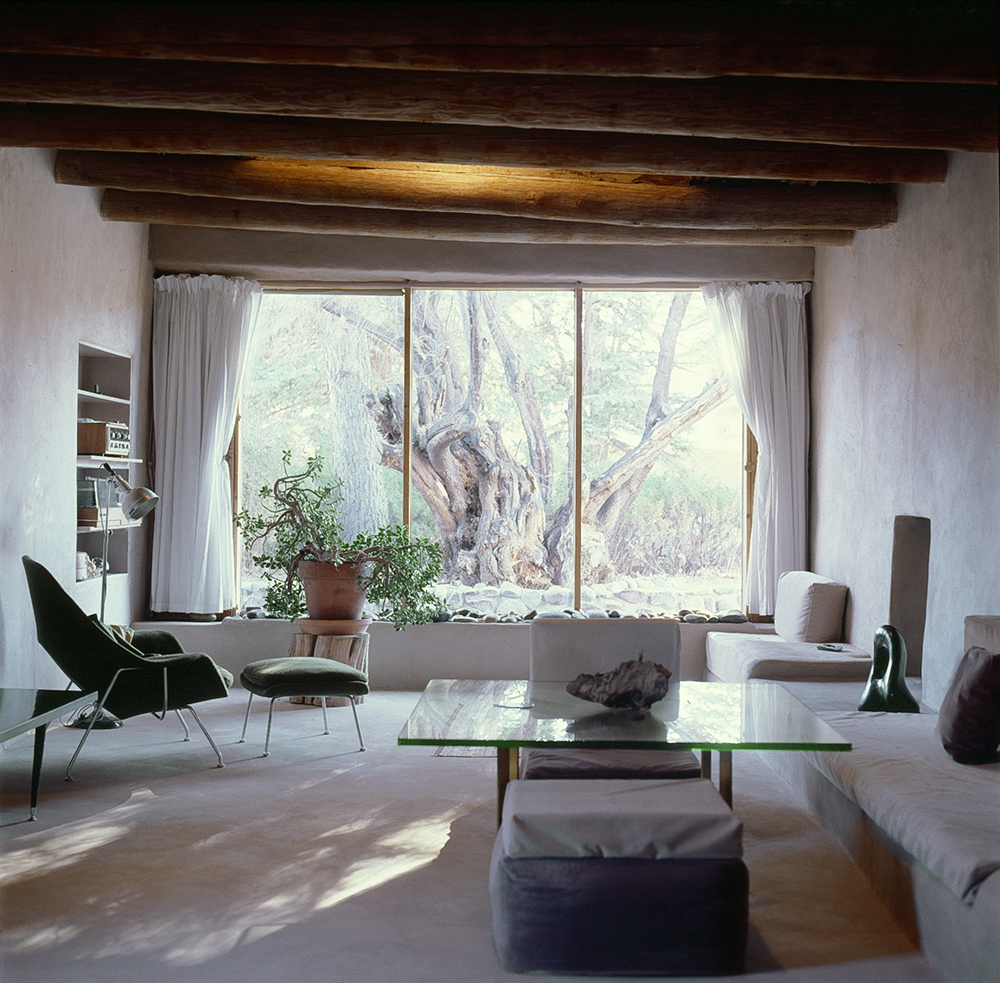
In Her Historic, High-desert Home in New Mexico, Artist Georgia O’Keeffe Created a Masterpiece
For eminent artist Georgia O’Keeffe, widely celebrated for her bold, imaginative abstractions, life itself was a work of art. One she could, and did, construct. So much of what we imagine Georgia O’Keeffe to be—the high priestess of American Modernism silhouetted against the stark desert sky—is a result of her own meticulous engineering. Her fitness for self-invention reveals itself from the art she produced to what she wore to how she lived: entirely on her own terms.
Before Georgia O’Keeffe settled permanently in New Mexico, she had already established one home there, the isolated Ghost Ranch, a modest summer place amid the rocky, fragmented mesas north of Santa Fe.
For all the grandeur of its location, the home was insufficient for year-round living. It lacked heat and water rights for a garden; stores were far away, and Georgia O’Keeffe wanted to garden and grow her own food. Not far from Ghost Ranch, however, was a crumbling, 5,000-square-foot Spanish Colonial hacienda in the prehistoric village of Abiquiu that, despite its dilapidated state, promised a pleasing orientation and fertile ground.
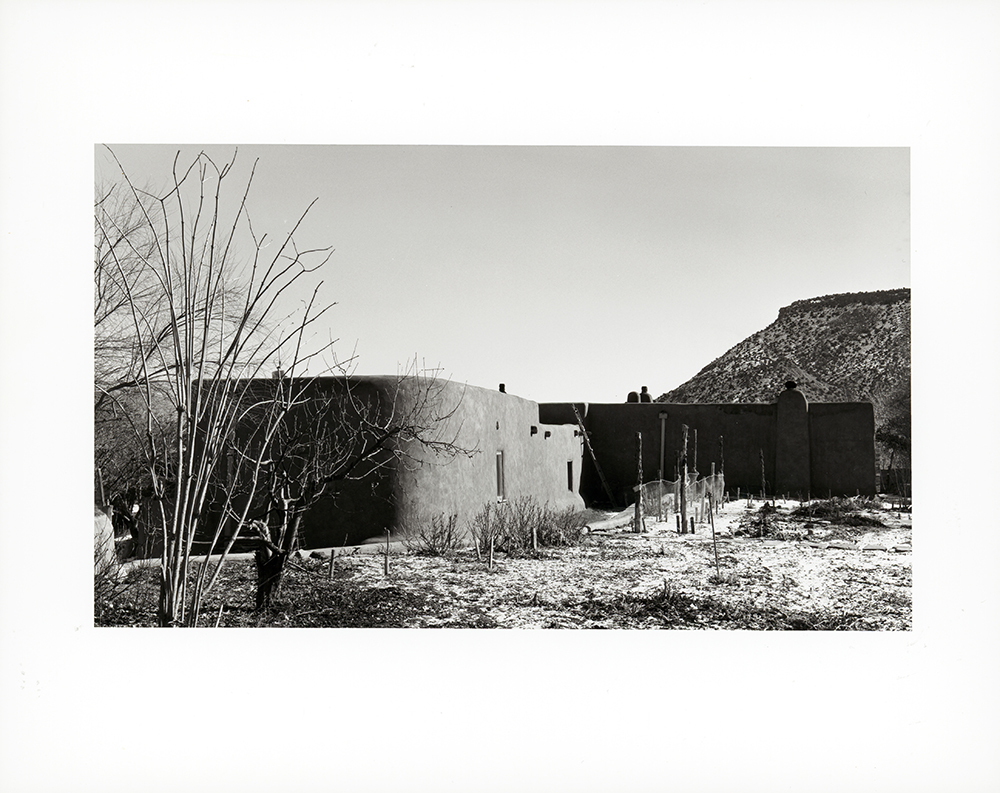
With some maneuvering, Georgia O’Keeffe convinced the property’s owner, the Archdiocese of the Catholic Church in Santa Fe, to sell her the compound in 1946 for the astounding sum of $10. The Abiquiu adobe, in complete ruins at the time Georgia O’Keeffe purchased it in the 1940s, was a laboratory for her creativity. She spent years reconstructing it, maintaining the property’s footprint, as she promised, but rebuilding the entire structure nearly from scratch.
The stable, for instance, an outbuilding for cattle, became her studio to which she added a generous window with views of the Chama River Valley; she then joined the structure with a walkway to the main house. She also acquired water rights and cultivated a beautiful garden and orchard.
“She was an artist redoing the house too,” says Wanda M. Corn, art historian and guest curator of Georgia O’Keeffe: Living Modern at the Brooklyn Museum. “She was just always fussing, as people do with their homes, to make it better. She was a hard worker and spent many hours a day making art, but also making her homes.”
This includes Ghost Ranch, which she also renovated and modernized. Her Abiquiu home is beautiful in its bareness; simple and austere, fashioned with a confident, no-nonsense economy. Fluidity is the feel, a blending of indoor, outdoor, and domestic environments, all thoughtfully composed, with deeply felt intention by Georgia O’Keeffe, both artist and curator.
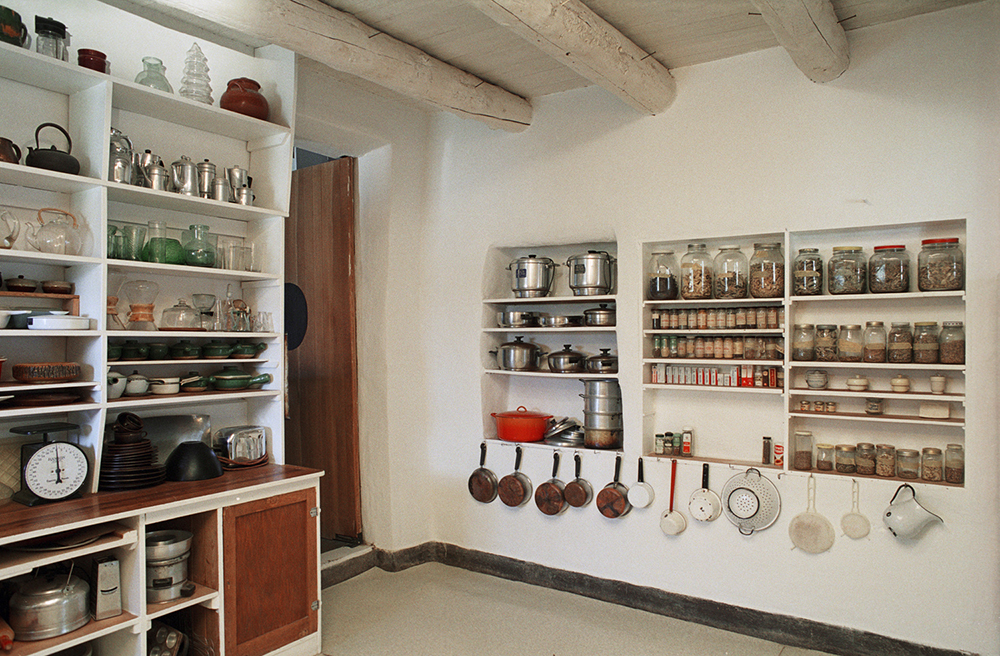
“Her art, her life, her food, her clothes, it’s all one aesthetic,” says Wanda M. Corn, “and we have very few artists who spread their aesthetic so pervasively in every aspect of their life.”
Through the years, Georgia O’Keeffe instituted changes and installed advances in the home. Furnishings became more modern. Art was sparse, and mostly Georgia O’Keeffe’s, but the windows were deliberately large, which made exterior views of the spectacular New Mexico landscape, its rock formations and rivers all the more operatic. Not only did Georgia O’Keeffe paint these scenes to great acclaim, but also the architectural attributes of her home, such as its famous black door, uniting her life’s great labors.
Georgia O’Keeffe was still in possession of both her New Mexico homes, Ghost Ranch and the Abiquiu compound, at her death in 1986. She was 98 years old, and though macular degeneration had robbed her of most her eyesight, she never lost her inimitable vision of life.
Photography Courtesy of The Georgia O’Keeffe Museum


